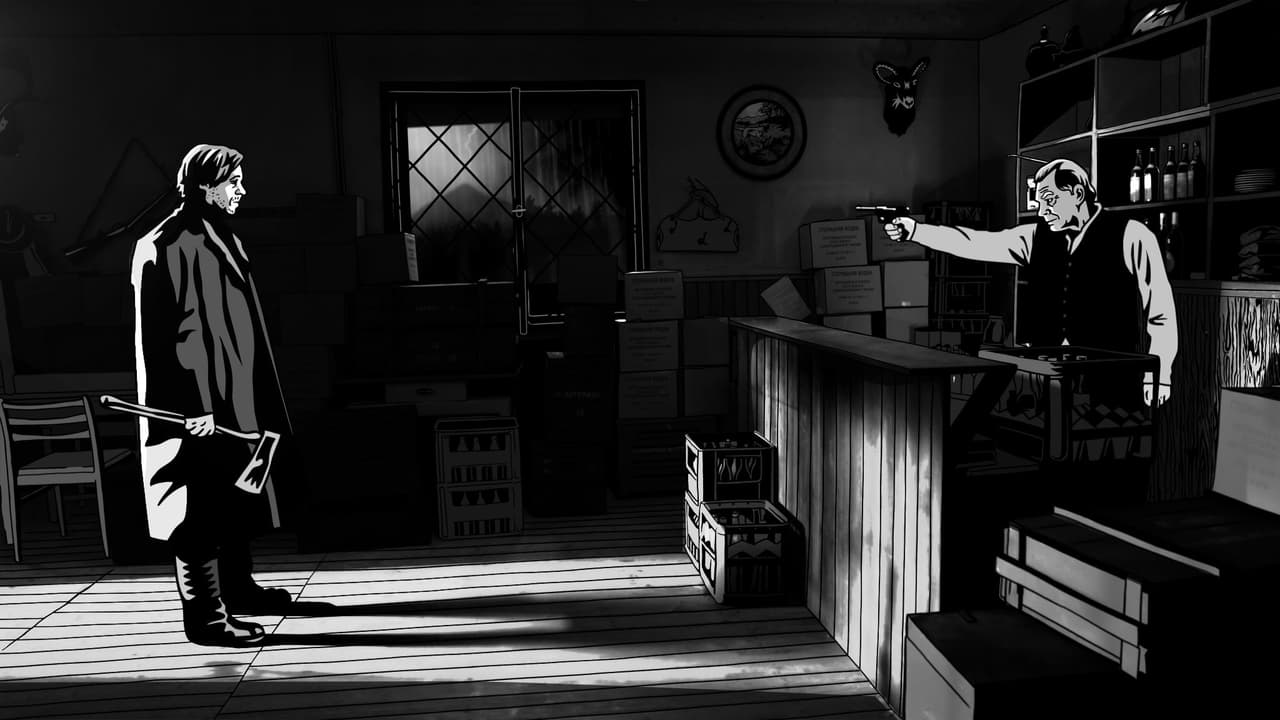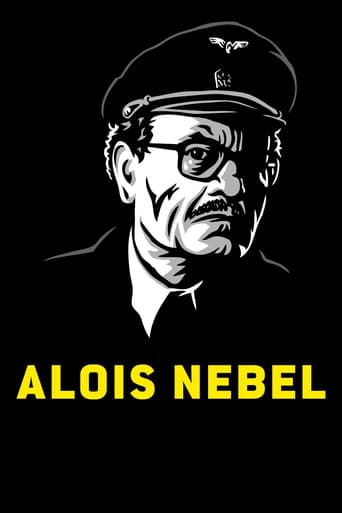Kattiera Nana
I think this is a new genre that they're all sort of working their way through it and haven't got all the kinks worked out yet but it's a genre that works for me.
Diagonaldi
Very well executed
Ogosmith
Each character in this movie — down to the smallest one — is an individual rather than a type, prone to spontaneous changes of mood and sometimes amusing outbursts of pettiness or ill humor.
chaos-rampant
This is characteristically Czech, that worldview shaped by centuries of being tossed from the sphere of one empire to the other and being unable to do more than watch; this watching is usually a whimsy or a mute sadness in Czech films. From this view flows a disenchantment with power as well as morals and narrative, a disenchantment that powers a lot of the life of representation over there, from independent- minded cinema right down to porn.Painting instead of chronicle. The film is actually both, the chronicle a series of moods about detachment from the world, centered on a weary station master in a remote post in the mountains who can only watch as night rolls down on the passing of things. There's smuggling going on to and from the border, this is how the activities of men are rendered here, as superficial schemes of an uninteresting importance. He is soon fired, takes his watching down to the city where no one cares. The backdrop is the fall of communism around the Bloc but this too reaches us as faint echoes from a TV or radio, there's no motivation for political discourse in any of this, only distance and disenchantment. This is the treatise, about this man who can wander away from it all as passively as he sat and watched the machinations and how this nearly costs him the one prospect left for love. It's not terribly interesting, the detachment as weariness more than space for reflection. The sketch is a bit more so, that's where the film derives a lot of its power from. It's an animated film, though it seems real people and locations were used for their nuance as the backdrop to sketch over. The animation is basically a shorthand here that lets the makers accentuate moods with a softer distance that you really have to strive to create with the camera. It worked for me, the dark mountains, the mud, the thankless vodka around a table with strangers, it seeps into the bones with the rain and chills.
matkoslav1
Have you ever seen any Czech film? Wheter yes or not, this movie is perhaps the best shot taken in Czech Republic for ages. A great story about how a single person can face consequences of his memories, bad experience and false people surrounding him. If you ever felt lonely, all the scenes, the entire movie, would definitely capture you! Alois Nebel is a story about how a common people lived in an era, when the loneliness was everywhere, when working on a railway station was about self-fulfillment and when living in a virgin nature somewhere near to Czech-Polish frontiers was as great as living in a heaven. This movie is worth of every penny!
kyle-165-646561
I have been living in the area where this film takes place (today it is called Jesenik, Czech Republic) for 15 years, A main theme in the film is the deportation of millions of ethnic Sudeten Germans from the Sudeten Land (up to 95% of the original population in this area was German) and were replaced with an assortment of peoples from various regions from Czechoslovakia, Romania, and Greeks (who themselves were exiled from Greece after a civil war). This issue is very sensitive even today, however this issue is present in many of today's "civilized" societies and countries: the local population is forcibly removed by a violent and armed population. The history of the world is about conflict and forced migrations. The United States of America is built upon the genocide and forced migration of the native peoples. Israel has been evicting the local Palestinians for decades and doesn't want to stop. Australia and New Zealand are Western styled countries built upon stolen land from the native populations. Nearly the all the North, Central and South American countries were built in the past centuries by Europeans who stole their wealth, subjugating the locals to their will and imposing their own cultural norms like religion upon the local population. However few people really want to face this brutal reality of our (European) history. In Alois Nebel, this brutal and incomprehensible act took place in recent memory and people who were expelled live to this day, I have spoken with them. For some reason only the forced migration and inhumane treatment of the Jewish people is in the chapter on WWII in the text books, like it is forbidden to teach that revenge upon the German population was meted out by angry mobs in the absence of any form of justice. Like this chapter was erased from the History Books. Try to imagine that one day a cultural minority comes to your neighborhood bearing arms and orders you to leave with just what you can carry. Your entire life's work and that of your ancestors is gone and becomes the property of another, your living room will be lived in by people who have no connection to the objects, the house you built will provide shelter for those who didn't lift a finger to build it. This act is the definition of inhumane, yet it goes on today all over the world.How can one live with one's self having participated in the epitome of inhuman behavior? How does one justify such behavior to their self in order to maintain a facade of humanity? What about revenge by the people who have suffered the maximum injustice? It is easy to demonize others, but how do people who engage in demonic acts justify their behaviour as morally correct.These themes are universal and take place in every culture and throughout history. Alois Nebel is just 1 small story, just 1 little man trying to make sense of the injustice and inhumane behaviour of fellow humans, he finds comfort in reading the timetables of the train schedule, as if the times are solid facts he can build his existence upon in a world of disguised brutality. His story takes place in a small mountain valley in Central Europe and is embedded in the history here. But that is not an excuse not to contemplate the larger themes that most people would much rather ignore than face. We need to face our history, just like Alois Nebel must face his own and not live in the fabrications that are created for us by those in power. Fabrications like the train schedule and fairy tale shown on the TV. And the corrupt behaviour of the average citizen - taking kickbacks, pocketing money meant for others, dealing with the enemy for personal gain. And knowing those morally corrupt around you also killed and expelled your family - how can a person live with that reality? These are the questions the film rises and these apply to everybody. Alois Nebel out of the fog creates his own reality with befriending a woman his cat, his devotion to his job (banging the train rails to hear if they are OK) and faith in the train table. Today's society creates its own distractions and "fog" in the form of Sports, reality TV, 24 hour "news" shows, personality cults based on celebrity (Oprah, Rush, Palin), and other contrived realities created by marketing professionals, Public Relations gurus and Religious figures in order for today's population to live in the fog and not realize what is really going on around them. I think there is a nod to Ken Kesey's novel "One Flew Over The Cuckoo's Nest" which was directed by Czech Milos Forman that also dealt with seeing the reality through the institutionalized (authority/government) fog.Alios Nebel's tale is told within one milieu - post WWII expulsion of Sudeten Germans from Czechoslovakia mountain hinterlands, the morally corrupt Communist system that followed and finally the Freedom after the Velvet Revolution. Every tale must exist within a cultural milieu, but that doesn't mean the basic themes are unique to that time and space, just the opposite, they transcend these boundaries. The themes raised are able to be addressed by every viewer in every country, if they themselves are able to see through the "Nebel" (German for Fog) that exists around them. After viewing this film, I hope the viewer will think about illusions created around them and the reality that lies beneath. Alios Nebel has traveled this path.
dumsumdumfai
tough as in this - the events it depicts is very central Europe specific, so not sure if it will convert well to unless for the more curious and exploring minds.although I admire the director being relatively young and chooses to do this instead of some action video movie. the scenes/shots/drawings are beautifully done - apparently added a layer of gray on top of the original comic of just black and white. Rotoscoped to be exact.Not just picture, but sound is striking. Storey wise I have not read the original and would like to know what they did or did not leave out. But he pacing, the style of not overly informative - that you have to read/think/digest is what I prefer.saw this at 2011 tiff. gives me a very strange combination of feelings of grim/guilt/inescapable and yet ephemeral beauty.

